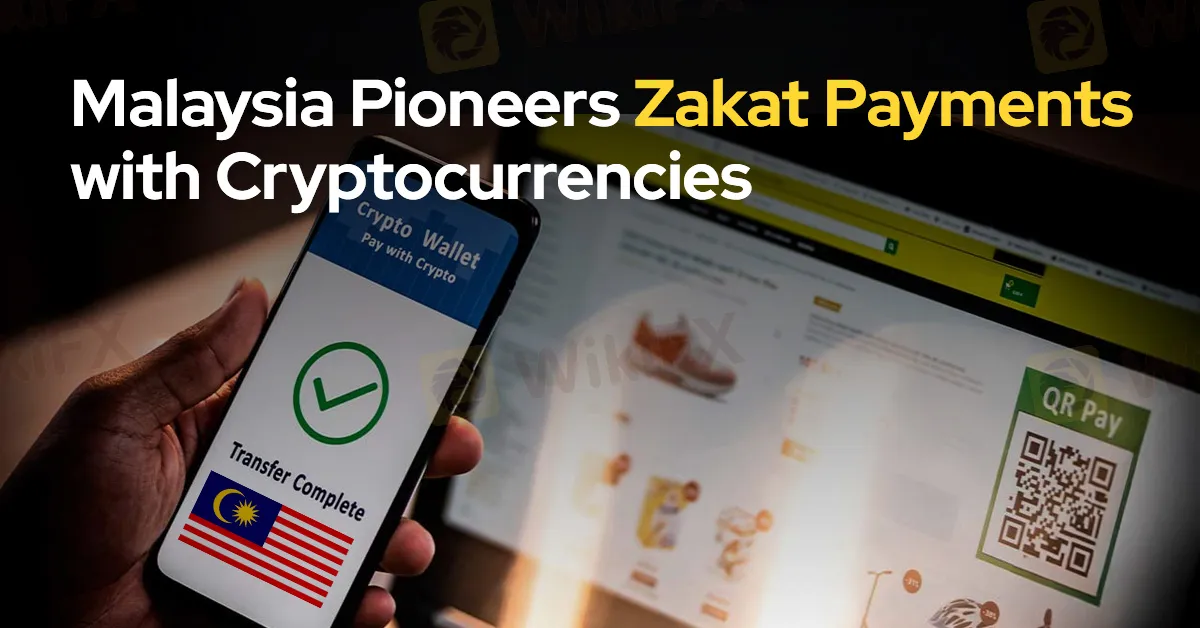简体中文
繁體中文
English
Pусский
日本語
ภาษาไทย
Tiếng Việt
Bahasa Indonesia
Español
हिन्दी
Filippiiniläinen
Français
Deutsch
Português
Türkçe
한국어
العربية
Malaysia Pioneers Zakat Payments with Cryptocurrencies
Abstract:Malaysia has taken a significant step in modernising religious practices by becoming the first country to enable zakat payments through digital assets.

Malaysia has taken a significant step in modernising religious practices by becoming the first country to enable zakat payments through digital assets. This initiative reflects the nations efforts to adapt Islamic practices to the evolving landscape of blockchain technology and cryptocurrency.
The Federal Territories Islamic Religious Council's Zakat Collection Centre (PPZ-MAIWP) spearheaded this innovation, aiming to educate Muslims about fulfilling their zakat obligations in the digital age. PPZ-MAIWPs chief executive officer, Datuk Abdul Hakim Amir Osman, emphasised the importance of raising awareness about the potential of digital assets as a new source of wealth, particularly among younger generations.
Reports reveal that Malaysians collectively hold digital assets worth approximately RM16 billion. These assets are now subject to zakat, with specific guidelines for their calculation. Within the age group of 18 to 34, 54.2 per cent of investors are involved in cryptocurrencies, highlighting a significant trend among the younger demographic. This shift, according to PPZ-MAIWP, presents an opportunity to integrate these digital holdings into zakat contributions.

Zakat in Malaysia is an obligatory almsgiving for Muslims, serving as a form of wealth purification and social welfare. It requires eligible individuals to contribute a portion of their wealth, typically 2.5% of savings, to assist the needy, such as the poor, orphans, and those in debt. Zakat payments are managed by state religious authorities, ensuring proper distribution. This act of charity is a fundamental Islamic duty aimed at promoting economic balance and community well-being.
The Federal Territories' Islamic Legal Consultative Committee ruled during its 134th session that digital currency qualifies as a tradable commodity. As a result, business zakat for digital assets has been set at a rate of 2.5 per cent. This ruling ensures that the evolving financial landscape aligns with Islamic principles, maintaining the relevance of zakat obligations in modern times.
The integration of digital assets into zakat collection reflects a broader vision of how Islam continues to adapt to meet the needs of its followers. The digitalisation of religious practices underscores the dynamic nature of Islamic teachings, which remain flexible in accommodating technological advancements.
The financial impact of this initiative has already shown promise. Zakat collection from digital assets increased by 73 per cent in 2023, amounting to RM25,983.91. This year, the collection has further grown to approximately RM44,991.97, indicating a steady rise in contributions through this innovative channel.
Malaysias move to embrace digital assets for zakat payments demonstrates its leadership in blending tradition with modernity. By acknowledging the significance of cryptocurrencies and other digital holdings, the country is setting an example of how religious and financial obligations can coexist in a rapidly changing world. This initiative not only strengthens the zakat collection system but also reaffirms the role of Islam in guiding its followers through contemporary challenges.

Disclaimer:
The views in this article only represent the author's personal views, and do not constitute investment advice on this platform. This platform does not guarantee the accuracy, completeness and timeliness of the information in the article, and will not be liable for any loss caused by the use of or reliance on the information in the article.
Read more

Elderly Ipoh Man Loses Nearly RM1 Million in Online Investment Scam
An elderly man in Ipoh, Malaysia, has fallen victim to an online investment scam, losing RM974,000 in the process. The 67-year-old’s ordeal came to light after he lodged a report with the Ipoh district police on January 11, 2025.

Cryptocurrencies: A Financial Revolution or a Double-Edged Sword?
The rise of cryptocurrencies and blockchain technology has been compared to transformative milestones such as the creation of money and the advent of the internet. These innovations are reshaping the way assets are valued and traded, pushing the boundaries of traditional finance. However, as with any disruptive technology, the journey is fraught with complexities that demand careful consideration.

Businessman Loses RM1.38mil in Online Investment Scam
Malaysian businessman loses RM1.38mil in IPO investment scam after falling for fraudulent overseas investment platform. Learn how to avoid such traps and protect your finances.

PayPal Users Warned About Sophisticated "No-Phish" Cyberattack
PayPal issues an alert about a new 'no-phish' cyberattack targeting users directly through its platform. Learn how this advanced scam works and how to stay safe.
WikiFX Broker
Latest News
Wolf Capital Exposed: The $9.4M Crypto Ponzi Scheme that Lured Thousands with False Promises
Confirmed! US December non-farm payroll exceeded expectations
Spain plans 100% tax for homes bought by non-EU residents
400 Foreign Nationals Arrested in Crypto Scam Raid in Manila
Singapore Blocks Polymarket Access, Following U.S. and France
OneZero Collaborates with Ladies Professional Golf Association (LPGA)
Housewives Scammed of Over RM1 Million in Gold Investment Fraud
Massive Hawala Scam: Rs 10,000 Crore Routed Abroad
PayPal Users Warned About Sophisticated "No-Phish" Cyberattack
Businessman Loses RM1.38mil in Online Investment Scam
Currency Calculator






